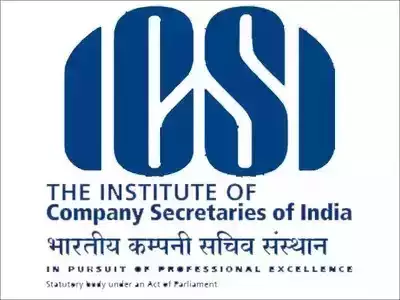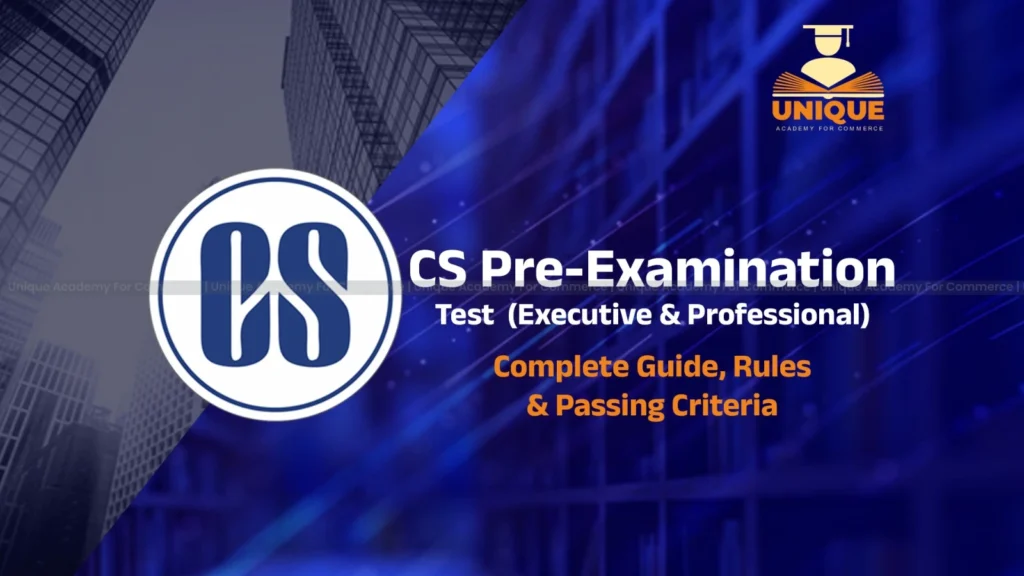HOW TO BECOME A COMPANY SECRETARY: 10 STEPS TOWARDS THE CERTIFICATION

BECOME A COMPANY SECRETARY is an elite profession that plays a central role in the practice of corporate governance, legal compliance, and advisory functions for business organizations.
BECOME A COMPANY SECRETARY in India happens through a structured approach as prescribed by the Institute of Company Secretaries of India. Here, we help you 10 elaborate steps to reach your goals of becoming a Company Secretary.
Step 1: What is a Company Secretary?

Know the role of CS before knowing the certification process. A CS ensures the company acts within legal frameworks, the compliance state with corporate laws, manages secretarial functions, and is a key advisor to the board of directors on corporate governance.
This is not just a knowledgeable lawman but also a leadership and strategic skills person.
Step 2: Join the CSEET Programme (Optional)
If you’re commencing directly after your 12th, then your first step would be joining the CSEET Programme. You have a CSEET course that gives you fundamental knowledge in Business Environment, Laws, Ethics, Economics, and Communications skills. Obviously, if you already graduated, you skip this and directly enroll for the CS Executive Programme.
Step 3: Apply for the CS Executive Programme

Fourth step is CS Executive Programme registration. It is an intermediate course. Here the core topics are taught which include Company Law, Securities Laws, Taxation, etc. To get into this course, a person has to qualify either the CSEET Programme or must hold a graduation degree from any stream except Fine Arts.
Registration Dates:
November 30th for exams the next year, June 2025 batch
Step 4: Clear CS Executive Exams
After getting registered, the next hurdle is to clear CS Executive exams. The examination has two modules with seven papers in total, the key topics being Economic, Business, and Commercial Laws, and Financial and Strategic Management.
Pro Tip: Having a well-structured study plan, best faculty for CS Executive classes, and regular revision will help you keep up the pace toward success.
Step 5: Register for CS Professional Programme
Finally, after clearing the Executive exams, comes the CS Professional Programme, which happens to be the final level of the CS course. The programme includes advanced topics like Secretarial Audit, Corporate Restructuring, and Governance.
Pro Tip: Choose optional subjects wisely according to your career interest (you might be interested in intellectual property or international business, for instance) to enhance your specialization.
Step 6: Clear the CS Professional Exams
Like the Executive Programme, the CS Professional has two modules with nine subjects, divided into mandatory and elective categories. You clear these exams which bring you closer to your goal.
Exam Structure (New syllabus)
•Two modules
•Seven subjects
Passing these exams is a big milestone, and for that, you need to know everything in your syllabus like the back of your hand and practice with mock tests and previous year question papers.
Step 7: Practical Training
Passing those exams is part of the journey, but a qualified CS also requires practical experience. According to ICSI, you have to undergo 21 months of practical training under the supervisions of a qualified Company Secretary or in companies, law firms, or financial institutions. Such training is provided for skill building and for your acquaintance with real-world corporate challenges.
Step 8: Complete the Management Skills Orientation Programme
You would need to attend the Management Skills Orientation Programme, or MSOP, after completing your training. This is supposed to orient you to the corporate world- while at the same time expanding your knowledge about leadership skills, communication, as well as management.
Step 9: Apply for Membership with ICSI

Once you have cleared all your examinations, completed practical training, and undertaken MSOP, you can seek membership with the ICSI.
A member from the institute would be considered a certified Company Secretary and would be entitled to practice as a CS professional.
Step 10: Maintain Continuous Professional Development (CPD)
Well done! You are now a Company Secretary. But, this is only the beginning and not the end. Your professional life requires frequent updating of the changing laws, corporate governance standards, and regulatory requirements.
ICSI directs the members to undertake CPD programmes regularly to keep abreast of the profession.
Conclusion
Being a Company Secretary is much more than just passing exams; it is really understanding comprehensively the corporate laws, governance, and ethics. The role carries a very unique blend of responsibilities which are both legally, managerially, and advisory and add significantly to the corporate world.
Follow these 10 steps and remain committed to your journey, and by the end of it all, you will not only become a certified CS but also be expected to possess the skills and knowledge required to succeed in that profession.
Good luck on your way to becoming a very successful Company Secretary!
CS JOBS: CAREER OPPORTUNITIES AFTER BECOMING COMPANY SECRETARY
5 Company Secretary Exam Fears and How to Manage Them
















